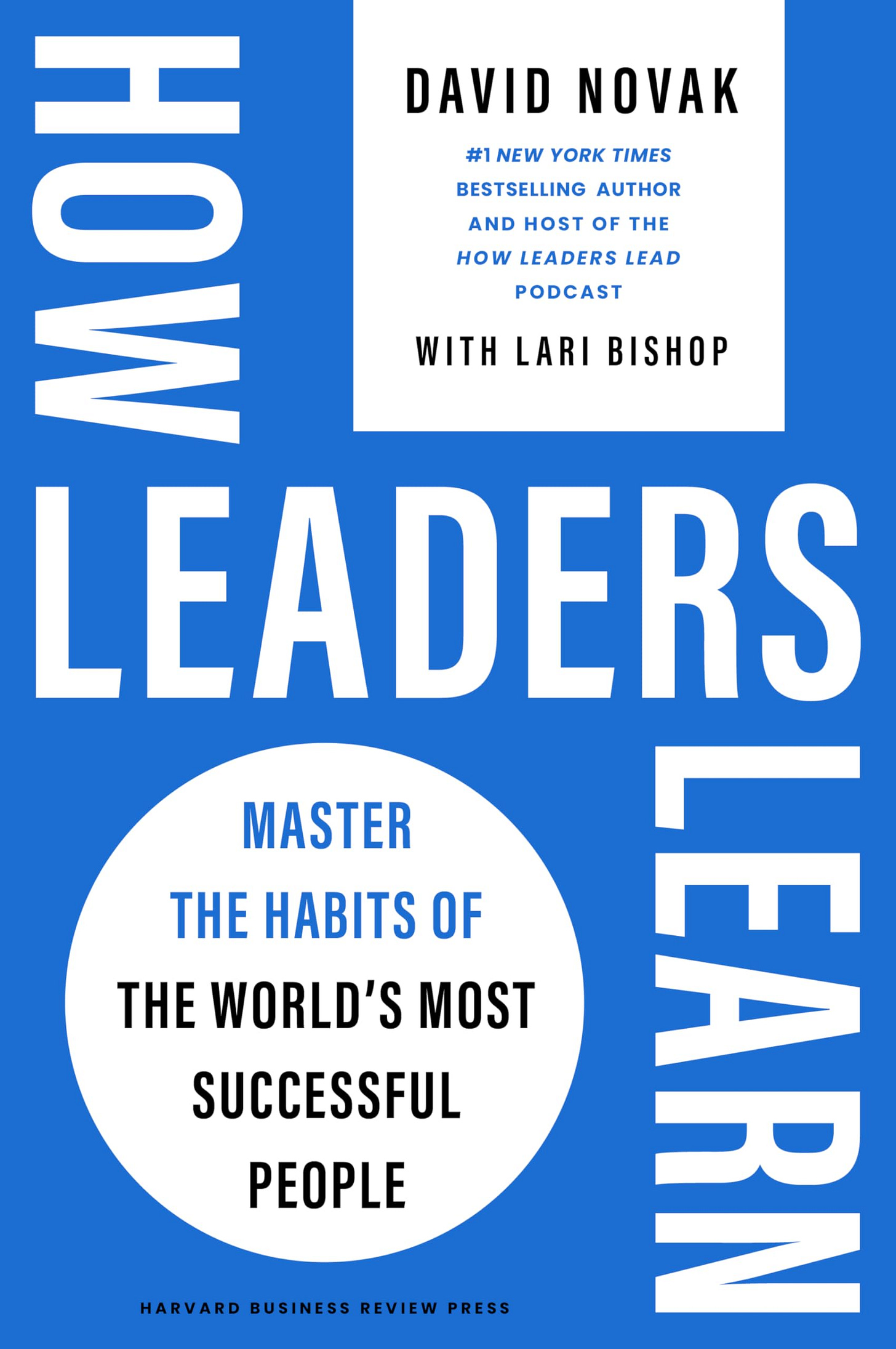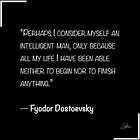Nuts and Bolts Review: How Leaders Learn, David Novak
Mastering the discipline of active learning to unlock your full potential
⏱️ Reading Time ≈ 12 min
The Book
How Leaders Learn is a groundbreaking exploration of active learning as the essential discipline for leadership in a rapidly changing world. Written by David Novak, the former CEO and co-founder of Yum! Brands, this book is rooted in Novak’s rich, diverse experiences—ranging from a humble, nomadic upbringing in trailer parks to leading one of the world’s largest restaurant conglomerates. Novak’s credibility is undeniable: his career trajectory and hands-on approach to transforming organizations have made him a trusted voice among global business leaders. Designed for ambitious professionals, executives, and anyone passionate about personal and organizational growth, the book addresses the needs of those who refuse to settle for mediocrity in an era where constant adaptation is not just an advantage, but a necessity.
Structured around three core themes—Learn From, Learn To, and Learn By—this work invites readers to view learning as a continuous, action-oriented process. It encourages leaders to extract valuable lessons from their past, cultivate the skills necessary to question assumptions and think critically, and ultimately, to apply these insights to drive real-world change. The book contextualizes its insights within the historical evolution of modern business practices, reflecting on the legacy of classic management theories while also embracing the disruptive challenges of today’s global economy. Drawing on a wealth of examples from diverse industries and featuring wisdom from renowned figures like Peter Drucker, Tasha Eurich, and Carol Dweck, "How Leaders Learn" serves as both a practical guide and an inspirational manifesto for lifelong learning.
If you’re ready to transform challenges into opportunities and ignite a mindset of relentless improvement, this is the book you cannot afford to miss. Embrace the journey of becoming an active learner and discover how every experience can be your stepping stone to greatness.
My Two Cents
“You live and learn.” A simple phrase, almost mundane in its ubiquity, yet surprisingly profound when considered carefully. What if learning isn’t something we naturally do simply by virtue of being alive, but rather a skill—a deliberate, structured practice—that only a few truly master? In his insightful book How Leaders Learn, David Novak argues precisely this: learning is not passive absorption, but an active, intentional discipline crucial for effective leadership. Novak, former CEO and co-founder of Yum! Brands, brings credibility and practical insight through years of navigating both profound successes and impactful failures. His thesis centers around the concept of active learning—a structured and intentional approach that can significantly alter how we perceive personal and professional growth.
Active learning, as presented by Novak, is more than simply observing life as it unfolds; it is about consciously extracting meaningful lessons from daily experiences and transforming these insights into actionable knowledge. It demands consistent practice, structured reflection, and purposeful engagement. Novak argues that active learners deliberately seek feedback, rigorously challenge their assumptions, and continually experiment with new approaches. Crucially, Novak notes that mastering active learning requires certain key characteristics: profound self-awareness, diligent execution, clarity in communication, simplification of complexity, robust logic and critical thinking, humility, and a relentless commitment to growth.
The strengths of Novak’s approach become evident through its integration with other respected frameworks. Readers familiar with Martin Seligman’s positive psychology will recognize concepts like optimism, resilience, and learned helplessness, now translated into practical strategies for overcoming setbacks. Connections to Daniel Goleman’s emotional intelligence are also clear, notably in how Novak emphasizes empathy, self-regulation, and interpersonal effectiveness as foundational elements of successful leadership. Furthermore, Novak’s principles resonate strongly with Daniel Kahneman’s behavioral economics, particularly the understanding of cognitive biases and their implications on decision-making and judgment.
Central among the attributes of an active learner is self-awareness. Novak argues persuasively that recognizing one's strengths, weaknesses, and gaps is fundamental to genuine learning. True growth stems from acknowledging what we do not know and systematically addressing these gaps. The book provides numerous examples of leaders who, by cultivating profound self-awareness, transformed seemingly limiting traits into powerful levers of personal growth and professional impact.
Another significant characteristic Novak emphasizes is execution, highlighting the crucial bridge between theoretical knowledge and practical application. Knowledge remains incomplete without action; thus, Novak stresses the importance of turning insights into tangible steps. The capability to execute involves experimentation, iteration, resilience, and continuous feedback loops, transforming mere knowledge into meaningful accomplishments.
Communication also holds critical importance in Novak's framework. Effective communication is not merely about clarity of expression, but about ensuring ideas resonate deeply and meaningfully within teams and organizations. Novak contends that without robust communication skills, even the most powerful insights can remain dormant, unshared, or misunderstood, severely diminishing their transformative potential.
Moreover, Novak elevates the often-underappreciated skill of simplification. Leaders who excel at simplifying complex issues not only enhance their own understanding but also enable others to grasp and act upon insights more effectively. Simplification demonstrates deep comprehension and ensures knowledge remains accessible, actionable, and impactful.
Additionally, Novak insists on the cultivation of robust logic and critical thinking. These competencies require individuals to continuously challenge assumptions, question conventional wisdom, rigorously evaluate hypotheses, and assess outcomes with intellectual honesty. Such thinking fosters innovation, adaptability, and prevents stagnation, allowing leaders to remain flexible in the face of new challenges and opportunities.
Beyond identifying core characteristics, Novak distills three critical lessons for active learners. Firstly, he emphasizes the strategic importance of choosing the right learning environments. He argues convincingly that great learners never select their contexts at random. Instead, they purposefully seek environments offering three distinct characteristics: opportunities aligned with current goals, compatibility with personal strengths and interests, and influences conducive to meaningful growth.
Secondly, Novak emphasizes the strength found in openly acknowledging "don’t know." Recognizing ignorance is not indicative of weakness; rather, it is a gateway to deeper inquiry and understanding. This mindset fosters curiosity, promotes continuous questioning, and facilitates a deeper, richer learning experience, ultimately positioning individuals to make innovative discoveries.
Thirdly, Novak delves into the transformative impact of asking "good" questions. Powerful questions are thoughtfully constructed to uncover underlying assumptions, generate novel insights, and stimulate profound reflection. Good questioning not only enhances learning but also sparks innovation, cultivates curiosity, and fosters a vibrant intellectual environment.
Yet Novak’s contributions extend far beyond these central themes. His work also thoughtfully addresses the virtues of embracing failure as a necessary pathway to mastery, emphasizes the critical importance of humility balanced by bold confidence, and details the significant impact of mentorship and recognition in accelerating collective learning. Rich with practical strategies, engaging anecdotes, and impactful insights drawn from real-world examples, Novak invites readers into a comprehensive journey towards leadership excellence.
Ultimately, How Leaders Learn offers more than just theoretical perspectives—it provides practical strategies that readers can immediately apply. For those who view learning as an ongoing journey, Novak's insights serve as both a map and a compass. If you want to transform how you think, lead, and live, How Leaders Learn is your essential guide. Because every day is indeed a school day—provided you know how to learn.
In Author’s Words
Quote n.° 1:
“An active learner is somebody who seeks out ideas and insights and then pairs them with action and execution.”
Quote n.° 2:
“Active learners feel discomfort in new environments, too, but they overcome their natural risk-avoidance tendencies by focusing on the opportunities for growth. For active learners, atrophy is more uncomfortable than change. That mindset helps them find things to learn and use what they learn, which makes them more successful in a new environment. When they eventually stop growing and learning in that environment, they know it’s time to look for a new opportunity.”
Quote n.° 3:
“Our fears are usually unfounded and can seem almost trivial after the fact.”
Quote n.° 4:
“Despite the work your brain does to keep you safe from the unknown, you can learn to overcome the barriers. The risks of staying where you are, standing still, and missing out on all the learning and potential of a new environment, chosen carefully, are almost always worse than the risks of making the move.”
Quote n.° 5:
“Self-aware people tend to knit more complex narratives of their key life events: they are more likely to describe each event from different perspectives, include multiple explanations, and explore complex and even contradictory emotions…. Instead of searching for simple, generalizable facts, self-aware people appreciate the complicated nature of the key events in their lives. Perhaps for this reason, complex life stories are associated with continued personal growth and maturity years into the future.”
Quote n.° 6:
“It’s amazing what you can learn when you ask people who know more than you to share their knowledge. Sometimes you need to put them at ease or make it safe for them to tell you the truth, but generally they want to share, and they love it when somebody listens. It’s also the fastest way to insight. You skip over trial and error. You leapfrog over the stuff others have already figured out. And that allows you to get to the heart of an issue, a problem, an opportunity, much faster.”
Quote n.° 7:
“Active learners understand something essential: the more you tell the truth, the more you’ll hear the truth. So they become truth-tellers themselves. To be a good truth-teller is an art, though. It begins with showing that you have the person’s best interests in mind. It requires some optimism about their ability to achieve something better and a willingness to help them along the way. Making this effort puts the listener in acceptance mode and helps bypass the immediate defenses of the brain so that they can see possibilities.”
Quote n.° 8:
“Operating from a position of fear and ego limits you. It narrows your thinking. It makes you less able to learn, grow, and improve. Once you focus on losing, or how you could lose, you do lose. But if you build your belief in your ability to win and if you’re focused on what you can do now to win, you’re operating from a place of mastery. You’re opening yourself up to what’s possible, what you can learn, and what you can leverage.”
Quote n.° 9:
“The problem with being a poor listener is that two people are involved.”
Quote n.° 10:
“Happy in challenge is better than miserable in success.”
Make the most of it! Until next time, S.










